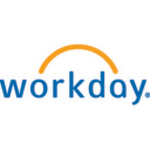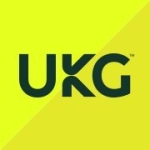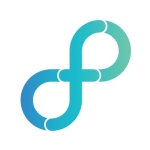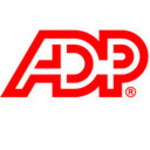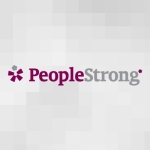What is our primary use case?
Our customers' main use cases include core HCM processes, covering the overall employee lifecycle, from hire to termination. You can manage all employee records, from onboarding to promotions, transfers, rehires, and offboarding. That's the core functionality.
Oracle HCM is a full-stack solution, including recruiting, learning management, performance management, talent management, employee and manager experience, and more. It's comprehensive and interconnected.
What is most valuable?
What our customers like about it: Oracle provides HCM solutions in a software-as-a-service infrastructure. It's not an on-prem solution. It's an Oracle-hosted cloud system.
So, once a customer subscribes to one of Oracle's HCM solutions, it's hosted by Oracle, and Oracle handles all the managerial functions and the system management functions of the product.
The customer does not need to invest in infrastructure and the hardware site. It Software-as-a-Service (SaaS) solution. The customer only focuses on the processes and the functionalities of the system. And what Oracle provides to the customers within that subscription.
And because it's a host of systems and is provided as a software-as-a-service (SaaS), Oracle carries on all the upgrades new functionalities, and new modules within the current subscription of the system. There are four upgrades. There are four increments within a year. In these four increments, Oracle gives all the product changes and the multifunctional gift free of charge because it's a matter of the subscription itself.
So it doesn't require any maintenance. All the maintenance is provided by Oracle.
What needs improvement?
In some geographies, you might not find specific localizations. For example, here in Turkey, we can use all Oracle Cloud modules except for payroll. The Oracle payroll module isn't localized for the Turkish system. So, we need to integrate a separate, localized payroll solution with Oracle HCM. This can be considered a disadvantage in the Turkish market, but not every country.
Oracle Payroll has many localizations for various regions. It just depends on the specific market and its requirements. If you implement Oracle in a country with comprehensive localization, it won't be an issue. But in markets like Turkey, you'll need to integrate other solutions.
However, Oracle is already working on so many functionality and enhancements within the system. So, in each upgrade, product upgrade. The system presents so many involvements and new functionalities, and all of these are designed according to the market trend.
So, Oracle is especially working on the employee experience within the system; there is no limit or boundary in the means of the employee experience.
So, Oracle can present new functions and aspects within the employee experience. However, it's an ongoing process, but Oracle can invest more in the means of the product experience.
There are so many enhancements requested by the customers, but we cannot indicate a specific area or topic about that. Oracle handles that kind of investment pretty well. Moreover, there's a very efficient community, which is called Cloud Customer Connect.
In the cloud and customer connects community environment, all the customers and partners can raise ideas about the product. And these ideas are rated and discussed by all the HCM professionals. Once the rate of some ideas extends to a specific level, Oracle goes and gets that enhancement request in its development plan- product development plan. So, all these enhancements and requests are handled directly by Oracle in a very transparent and innovative manner.
For how long have I used the solution?
I have been working with this solution for five years now.
What do I think about the stability of the solution?
It's highly stable because the system is totally managed by Oracle, Oracle provides 99.9% availability for the system uptime. All the systems are developed on some basic product standards. The interfaces and the general product do not differentiate according to the modules or functions.
It's a highly stable and highly homogeneous HCM, especially for the employees' experienced type, and the use of the system is very configurable. And the customers and end users use a very stable and standard processes and interfaces.
What do I think about the scalability of the solution?
The HCM scalability is again very high because Oracle supports the product itself.
So, once we need an extension, there are various tools that we can use to expand the system. Just like Oracle integration cloud, Azure web cloud service, process cloud service, and visual builder cloud service, we can either personalize the current user interface and the processes, or we can generate or develop some functions from scratch.
So, all these technological instruments are over there once you purchase an HCM product or subscription.
How are customer service and support?
Oracle provides all the support functionality. There is a support Oracle Com website. All the customers who have an active subscription or product subscription can go and raise their tickets over there and get help and support from the Oracle support channels.
Also, there is a huge Oracle community, and all the Oracle customers and partners can benefit from the knowledge and ideas shared amongst the community. So there are hundreds, thousands of individuals and professionals who use the Oracle HCM pillar. You can share your thoughts, information, and materials within this community.
How would you rate customer service and support?
Which solution did I use previously and why did I switch?
In my previous work experiences, I had indeed worked with some other HCM solutions.
Oracle HCM is a natively developed product by Oracle. They haven't acquired or integrated any external solutions. This makes for a very stable and homogenous technological infrastructure. That's crucial because compared to other HCM competitors, even those on Gartner Major Quadra, most tend to acquire and integrate sub-modules, which can lead to integration issues.
In Oracle, everything is native and built with Oracle tools, making it seamless and stable. Additionally, the cloud infrastructure is a big advantage. Not all HCM solutions are truly cloud-based. Many are still on-premises. Oracle Cloud HCM provides all the benefits of a cloud application.
How was the initial setup?
The initial setup is not complex because the overall system setup and configurations are supported by a specific tool, which is called the functional setup manager. This is a step-by-step method to carry on all your configurations.
You can keep track of the progress within the overall setup and maintenance activities, and you can assign some specific setup and configuration steps within your project team; the functional setup manager provides so many internal tools in order to make it easy to progress within your setup. It includes some project management tools. It includes some data import and data extract functional pieces and tools.
Overall, project management functional pieces are provided by Oracle's internal project implementation methodology, which is specific to cloud implementations. So there's a very huge infrastructure in the means of managing your projects and managing your configuration.
What about the implementation team?
We are implementing and giving support and maintenance consultancy for the HCM products. We are the experts in Oracle HCM Cloud. We also work with on-premise ERP and supply chain modules, but in the cloud space, we're experts in Oracle Human Capital Management.
The resources required for deployment and maintenance are totally dependent on the depth of the project because, in some projects, we may handle one or two modules, or in some other projects, we may need to handle multiple modules within the HCM Cloud.
According to the depth and scope of the project, we position the talented and certified consultants on the system. So, it totally depends on the scope of the project. Each project member has their own expertise area; we generally divide and categorize the consultants' talents and experiences at which point they are working. We name some of the consultants as functional consultants. Some of them are named as technical consultants. Also, the project managers and data scientists are being positioned in the project.
The functional consultants generally carry on all the analysis, setup, configuration, and test activities within the project. The technical consultant highly works on the report development or some extensions developing some extensions, or whether the system requires integration with a third party or not. They are also working on the integration parties and aspects. So, we position the consultants according to their expertise areas and the scope of the project.
The deployment of one module depends, but it may take between four and six months.
What was our ROI?
When it comes to ROI, the enterprise-level companies here in Turkey implementing Oracle HCM Cloud solutions are definitely seeing it. They achieve specific ROI figures within set timeframes.
What's my experience with pricing, setup cost, and licensing?
According to the Turkish market, the pricing is a little bit expensive. There are so many HCM solutions in Turkish markets. So, Oracle is one of the expensive ones. So, not all people and companies can make an Oracle investment easily.
But when we compare cloud solutions with global HCM solutions, they're not more expensive than an SAP solution or Workday solution, etc. But for our markets, for our country, it's a considerably expensive one. So, in Turkey, we can position Oracle HCM solutions only for enterprise-level companies.
What other advice do I have?
The product itself is very powerful, innovative, and easy to use. And in terms of total cost of ownership, it offers significant advantages. However, to truly maximize the benefits, a proper and accurate implementation is crucial. That's where partnering with a highly skilled consultancy and implementation team becomes vital. It highly impacts the project's overall success.
So, a customer who wants to invest in Oracle HCM solutions should first have a clear and defined Oracle HCM strategy for their specific HCM processes. Based on that strategy, they can then choose the appropriate modules. Collaborating with a competent and experienced implementation partner is highly recommended.
Moreover, we highly advocate for a phased implementation approach. We don't endorse or believe in the "big bang" projects. Instead, handling the project in stages or in a step-by-step manner, aligned with the company's HCM strategy, is a much more effective approach.
Overall, I would rate the solution a nine out of ten.
Disclosure: My company has a business relationship with this vendor other than being a customer. Partner










